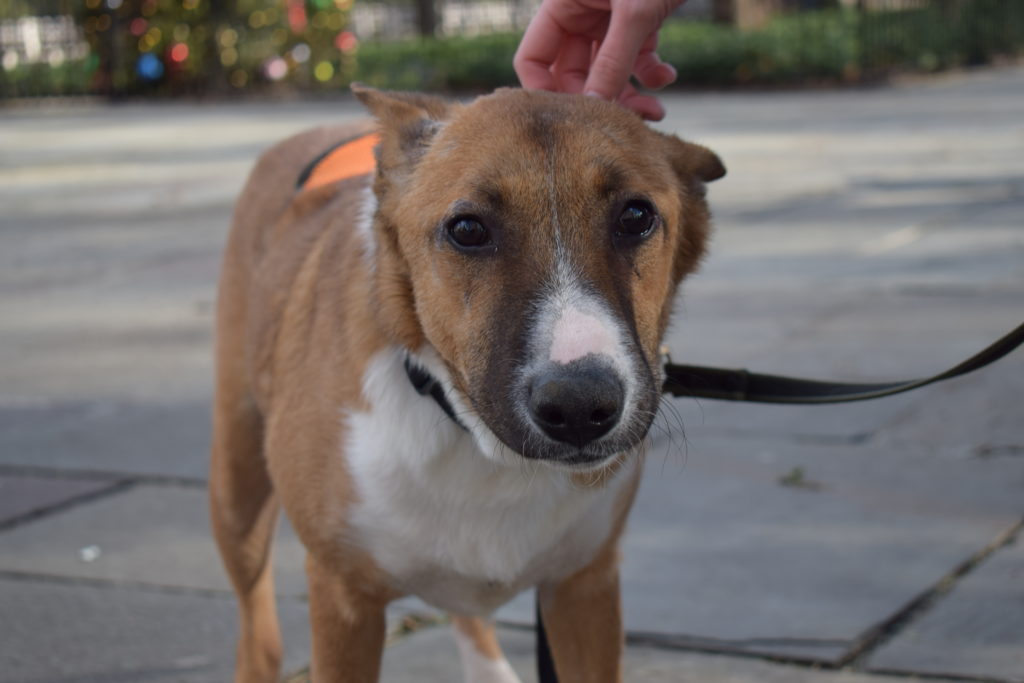We are frequently asked why we are not rescuing locally.
We are!
We started out rescuing exclusively from NYC shelters as our hearts were with the local boroughbreds. The ACC of NYC received more funding from the city and won grants enabling them to have more outreach programs to help people keep their cats and dogs, better diagnose and medicate animals in their care, increase the number of affiliated rescue groups to take cats and dogs from the city shelters, buy mobile vans for offsite adoption events and extend their in-house adoption hours. The resulting impact is lower euthanasia numbers.
We still take cats and kittens from the ACC as their intake numbers are high but the adoptable dogs are quickly scooped up by adopters!
We work with some out of state municipal shelters and often take in cats and dogs given up by their families (for example: victims of divorce, loss of home or if the owners become sick, disabled, or in the event of death).
We started by helping Sato dogs in Puerto Rico and still have our connections there.
We have recently broadened our scope to helping cats and dogs from countries where “adoption” and “animal welfare” are not a social norm. While we cherish cats and dogs as family, elsewhere they are considered vermin. Many of the cats and dogs we take come from horrific conditions, the likes of which defy comprehension.
In the Middle East, kittens are kicked or thrown against walls, purebred cats mistreated and oftentimes left sick in tiny cages in pet stores. Cats and dogs are brought to the local marketplace are then abandoned on the streets if not sold, deliberately hit by cars or left to starve, especially if missing a limb or other body part, blind, deaf, or otherwise not purrfect.
We have rescued cats from Egypt and Kuwait, dogs from Egypt, Kuwait, Jordan, Qatar, Thailand, Nepal, Russia and Greece and will continue to do so.
We now know the rescuers in many of these countries. We work directly with them to decide which cat/dog can come on which date, depending on the urgency of the situation and availability of foster.
Our Russian pups come from an outdoor shelter in Yakutsk (Eastern Russia) where the temperatures can go as low as -50 degrees. The rescue team we work with there does their absolute best but at times they come back to a very gruesome situation. The dogs in this shelter are routinely exterminated by the local authorities as a means of “pest control” when no one is around after a very short stay, or specifically when they closed for a holiday. Yes – inside a shelter, not wandering around.
The list of atrocities committed against these animals is mind blowing and endless.
How can we refuse to help?
What does it take to transport these dogs and cats to the US?
Usually someone coordinates the different rescue groups on both ends of the flight: the country of origin and USA. The standards of bringing cats and dogs internationally are far higher than in most local shelters; then the individual airlines have their own standards regarding crate size, number of blankets, food/water/paperwork for the flight.
Cats and dogs must have their rabies vaccine a minimum of 30 days prior to the flight, have all other age appropriate vaccines, are spayed or neutered, cats are FIV/FeLV tested, and dogs are heartworm tested if coming from hot, wet climates. Dogs must have clearance from customs here in the US to enter the country; not so with cats (yet).
Our best option is when there is a volunteer flight parent who travels with many animals in cargo. If there is no flight parent, then there are additional cargo fees, a customs broker with fees, a holding place at the airport with fees, much more paperwork and just driving across the tarmac at JFK is 100$ (2 cats and 2 dogs recently cost us an additional $1000.00!).
Because we were all once upon a time immigrants, we feel it is both our duty and privilege to bring those needing refuge from countries where they would be otherwise cruelly eliminated and where our help is most needed.
Please help us continue our efforts to help the helpless by donating and informing others via social media or by fostering a cat or fostering a dog, or adopting (Check out our adoptable cats and adoptable dogs)!








